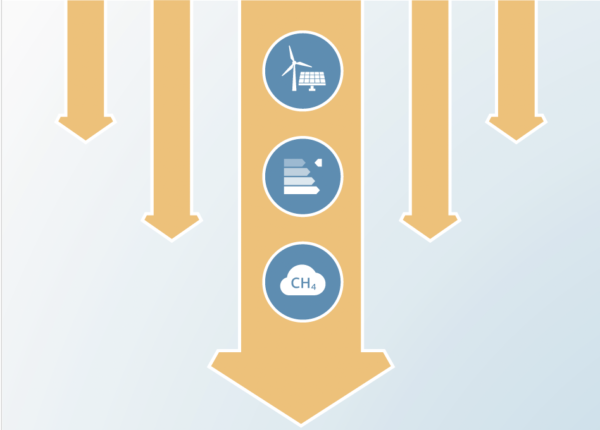Production Gap Report 2025
Authors
Derik Broekhoff, Neil Grant, Alexandra Proepper, Olivier Bois von Kursk, Paul Chandra Sekar, Nichole Dusyk, Emily Ghosh, Hannah Grant, Adli Azayaka Huda, Carlos Eduardo Posada-Perlaza, Godwin Sekar, Shruti Sharma, Zoha Shawoo, Anissa Suharsono, Indira Urazova, Bathandwa Vazi, Paola Andrea Yanguas Parra
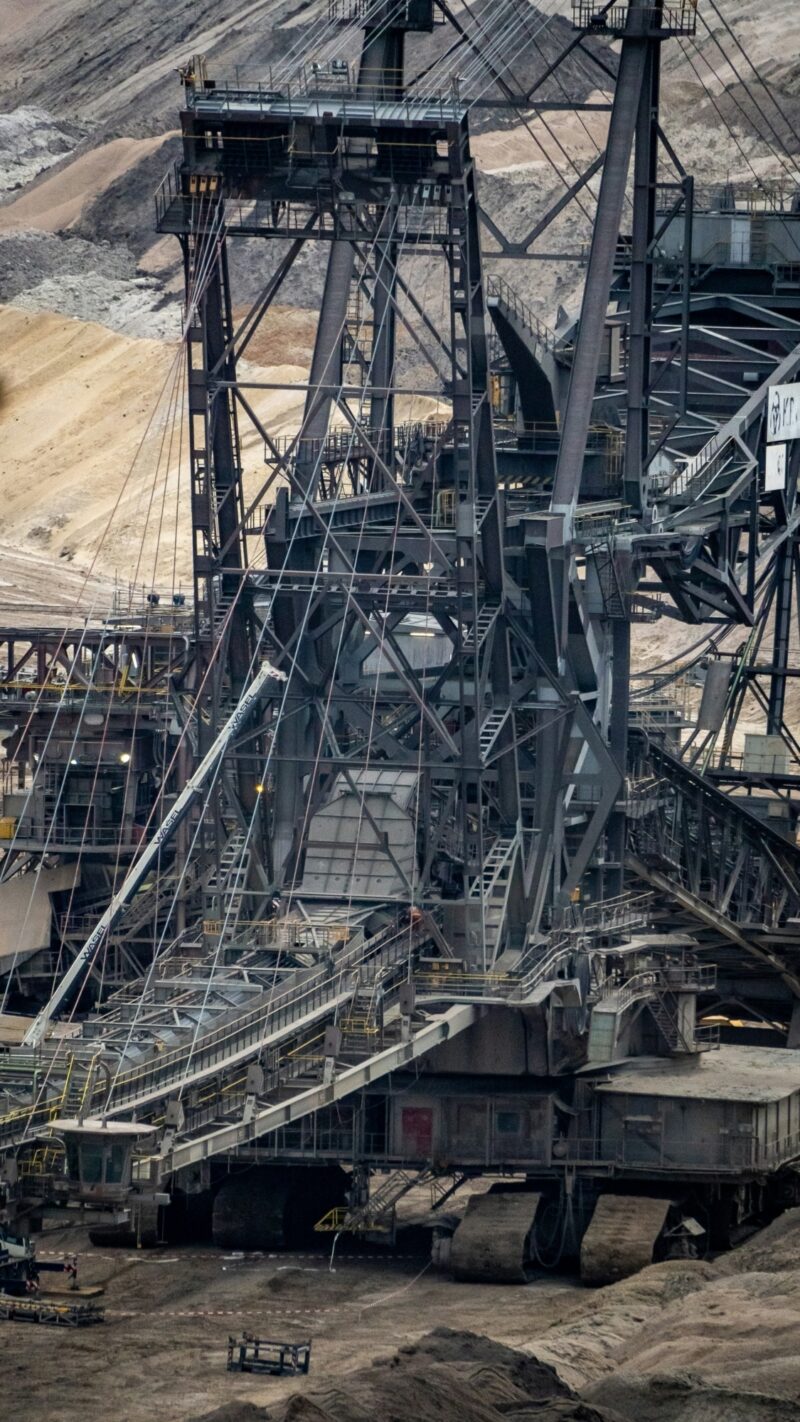
Governments, in aggregate, still plan to produce far more fossil fuels than would be consistent with limiting global warming to between 1.5ºC and 2ºC. Countries are now collectively planning even more fossil fuel production than two years ago, with projected 2030 production exceeding levels consistent with limiting warming to 1.5ºC by more than 120%.
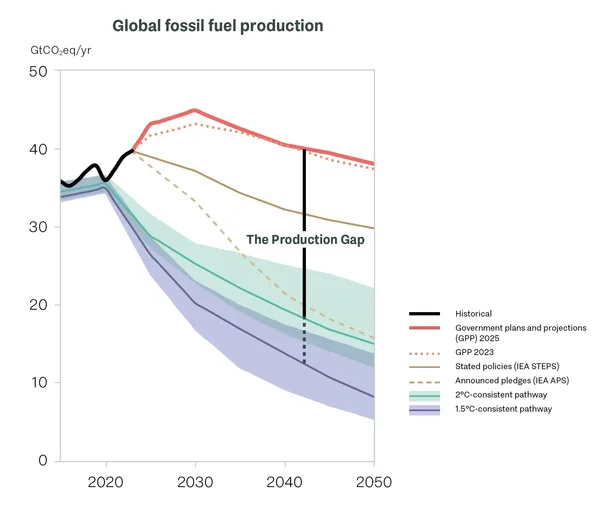
Taken together, governments now plan even higher levels of coal production to 2035, and gas production to 2050, than they did in 2023. Planned oil production continues to increase to 2050. These plans undermine countries’ Paris Agreement commitments, and go against expectations that under current policies global demand for coal, oil, and gas will peak before 2030.
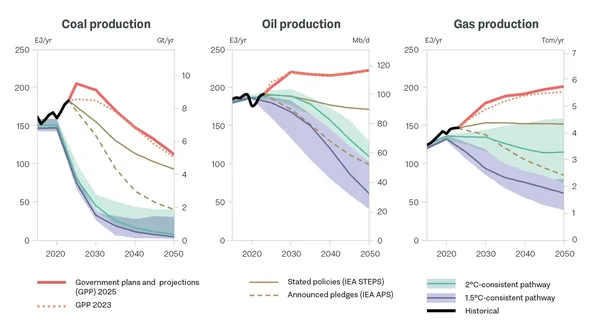
Most of the 20 countries profiled in this report continue to plan fossil fuel production at levels inconsistent with their net zero climate ambitions.
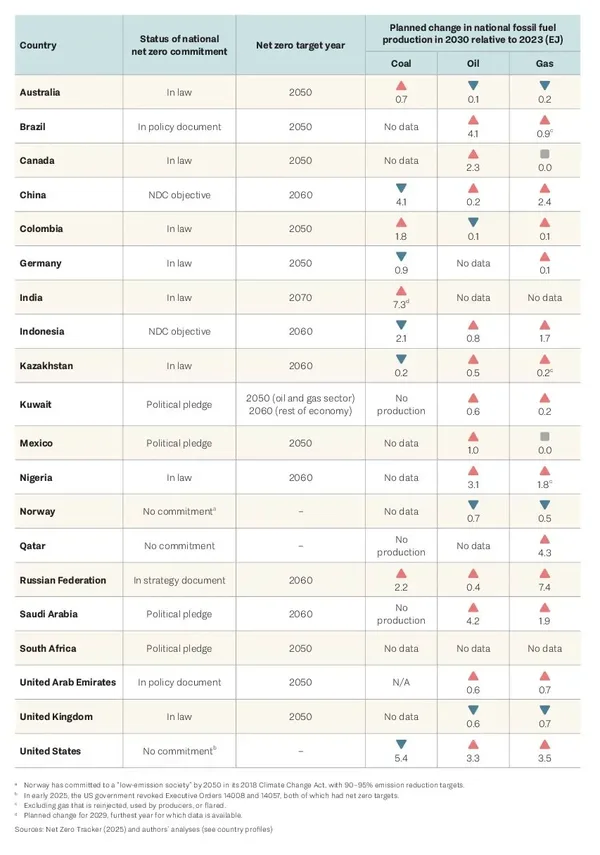
The continued collective failure of governments to curb fossil fuel production and lower global emissions means that future production will need to decline more steeply to compensate. Reaching net zero greenhouse gas emissions in the second half of the century, as the Paris Agreement calls for, will require cutting fossil fuel production and use to the very lowest levels possible.
Achieving these reductions will require deliberate, coordinated policies to ensure a just transition away from fossil fuels. While a few major fossilfuel-producing countries have begun to align production plans with national and international climate goals, most still have not.
As governments submit their third round of nationally determined contributions under the Paris Agreement, they must commit to reversing the continued expansion of global fossil fuel production, explicitly integrate plans for reducing production within wider energy transition efforts, and redouble cooperative efforts to ensure a just transition globally.
This report is produced by the SEI, Climate Analytics and IISD.




